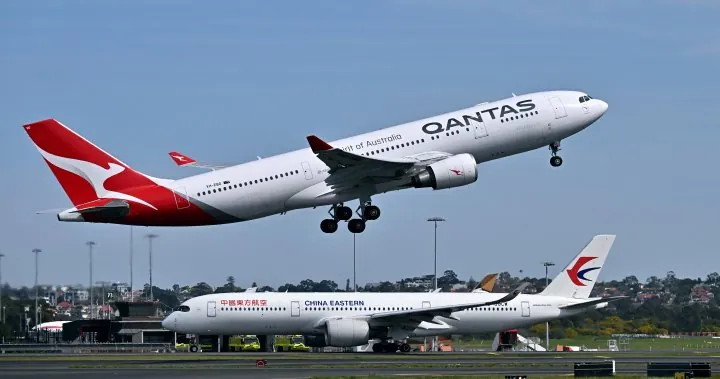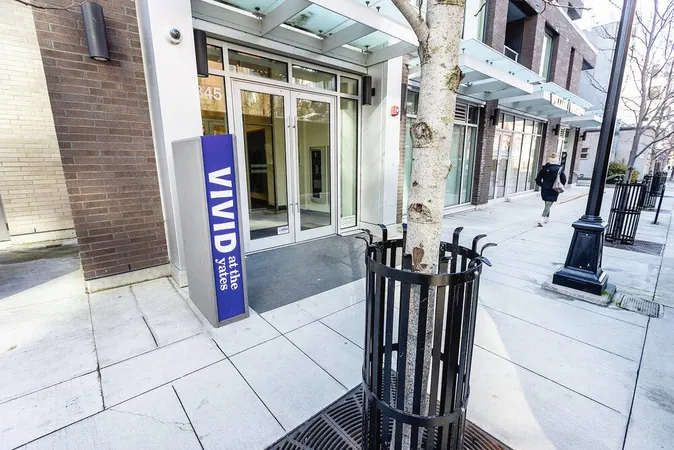
New Phishing Threat: Mamba 2FA Service Poses Major Security Risk to Microsoft 365 Users
2024-10-08
Author: Jacob
A new and alarming phishing-as-a-service (PhaaS) platform, known as Mamba 2FA, has emerged, targeting Microsoft 365 accounts through advanced adversary-in-the-middle (AiTM) attacks. This platform employs sophisticated techniques, such as deceptively crafted login pages, to breach accounts by bypassing multi-factor authentication (MFA).
Mamba 2FA is being marketed to cybercriminals for a surprisingly affordable rate of $250 per month, which has gained it traction as one of the most enticing and rapidly expanding phishing tools available today.
Evolution and Tactics
First identified by analysts at Any.Run in late June 2024, Mamba 2FA has roots dating back to its activity as earlier as November 2023. Reports indicate that the platform had been available for purchase on instant messaging applications ICQ and Telegram, illustrating its accessibility to malicious actors. After an initial campaign was reported in June, the Mamba 2FA creators quickly adapted their methods, tweaking their infrastructure for better stealth and longevity.
In a significant update since October, Mamba 2FA has implemented proxy servers, specifically from a provider known as IPRoyal, to obscure the IP addresses linked to their relay servers on authentication logs. This move reduces the chances of being detected by security systems, which previously exposed IP addresses connected directly to Microsoft's Entra ID servers.
Moreover, the phishing URLs they use now feature shorter lifespans and are rotated weekly, making it harder for security software to blacklist them. Analysts have flagged additional measures, including the enhancement of phishing emails with innocuous filler content that conceals malicious JavaScript, further complicating detection efforts.
Targeting Microsoft 365 Users
Mamba 2FA specifically focuses on users of Microsoft 365, both individual and corporate accounts, thanks to its tailor-made phishing templates that include OneDrive, SharePoint Online, and even fake voicemail notifications that lead users to bogus Microsoft login pages. The sophistication does not end there; for enterprise accounts, Mamba 2FA's phishing interfaces dynamically adapt to mimic the specific branding of the targeted organization, complete with logos and custom images for added authenticity.
Once credentials and authentication cookies are harvested, they are relayed to the attacker via a Telegram bot, allowing for immediate account access. This real-time communication significantly enhances the attacker's ability to exploit stolen credentials before victims can respond.
Additionally, Mamba 2FA employs sandbox detection, redirecting users to Google error pages if the platform suspects it is being analyzed or tested by security professionals.
A Call for Action
The emergence of Mamba 2FA is a stark warning for all organizations relying on Microsoft 365. As lower-skilled actors gain access to such effective tools, the cyber threat landscape is becoming increasingly perilous.
To combat threats posed by PhaaS platforms like Mamba 2FA, experts recommend employing hardware security keys, certificate-based authentication, geo-blocking measures, IP allowlisting, device allowlisting, and shortening token lifespans.
Stay vigilant and proactive in protecting your digital assets—this could be the wake-up call needed to bolster your security measures against evolving cyber threats! Don't let your sensitive information fall into the wrong hands.









 Brasil (PT)
Brasil (PT)
 Canada (EN)
Canada (EN)
 Chile (ES)
Chile (ES)
 España (ES)
España (ES)
 France (FR)
France (FR)
 Hong Kong (EN)
Hong Kong (EN)
 Italia (IT)
Italia (IT)
 日本 (JA)
日本 (JA)
 Magyarország (HU)
Magyarország (HU)
 Norge (NO)
Norge (NO)
 Polska (PL)
Polska (PL)
 Schweiz (DE)
Schweiz (DE)
 Singapore (EN)
Singapore (EN)
 Sverige (SV)
Sverige (SV)
 Suomi (FI)
Suomi (FI)
 Türkiye (TR)
Türkiye (TR)